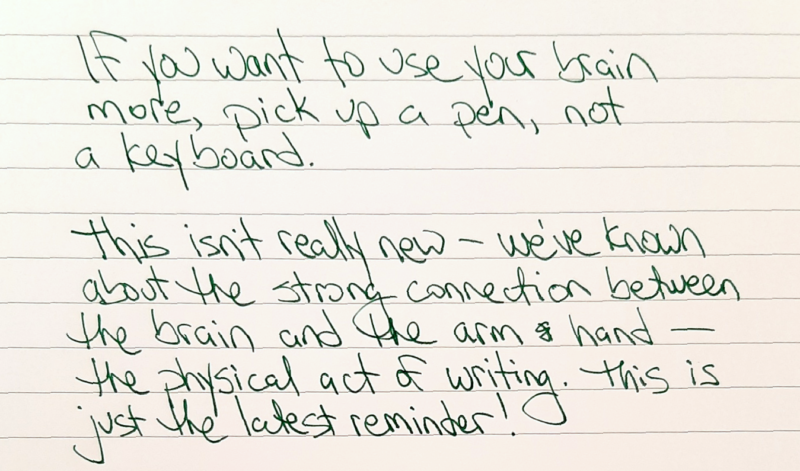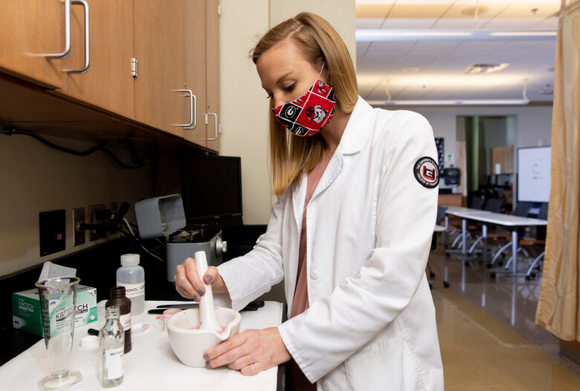Scary after effects, Covid cases tick up again, the pen is mighty, and more
24 Mar 2021
Posted by Andrew Kantor
Miscounted vaccinations
Georgia is among several states with a vaccine reporting error, according to the CDC. Apparently, some shots given in the state at pharmacies were credited to the pharmacy chain’s home state (e.g., Rhode Island for CVS) rather than the state it was given in.
Remember, as vaccine delivery is apparently a competition, this could hurt Georgia’s score.
In Georgia, at least 250,000 doses were administered through the federal pharmacy vaccination program but not counted in vaccine tracking data. The uncounted doses would represent about 9% of the state’s 2.74 million reported shots, as of March 16.
“An unforced error”
The AstraZeneca vaccine saga continues. The latest: After getting through the whole “Does it cause blood clots?” kerfuffle, the AZ folks showed that their vaccine was 79 percent effective. Great!
But wait! Now it seems that the company’s numbers “may have been based on ‘an incomplete view of the efficacy data’ from a clinical trial and relied on ‘outdated information’.”
Asked why NIAID released its unusual statement, Fauci said, “We just felt we could not remain silent. Because if we did remain silent, we could be understandably accused of covering something up. And we definitely didn’t want to be in that position. In my mind, it’s an unforced error by the company.”
A Covid vaccine pill?
It’s expected to start clinical trials this year. In a best-case scenario, that means it won’t be available for at least a year, but that could make it available if we all need regular boosters to deal with variants.
Marketers are noticing pharmacists
There’s been lots of talk about the new, expanded role pharmacists are (finally!) playing, thanks to the pandemic. But most of the talk has been about how the government sees them.
Today’s Long Read: How marketers are adjusting to pharmacists’ expanded roles.
The resulting shift has prompted marketers to experiment with new channels as they try to cut through the noise. As they do so, questions have emerged as to whether pharmacists’ expanded scope of care, and subsequent increase in contact with patients, will outlast the current crisis. Either way, many consumers are unlikely to ever again view their local chain pharmacy as a mere convenient destination for M&M’s and paper towels.
It’s just something you don’t want to get
Post-Covid symptoms can include psychosis — “It was really single-handedly the most terrifying thing I’ve ever experienced in my life,” said one patient.
What’s particularly scary: This was after a mild case of the disease. And no one knows what the cause is — immune response? Inflammation?
Much about the condition remains mysterious. Some patients feel urges to harm others or themselves. Others […] have no violent impulses but become almost obsessively paranoid. Some need weeks of hospitalization with doctors trying different medications, while others improve faster. Some patients relapse.
That’s just the tip of the iceberg. “A new study illuminates the complex array of neurological issues experienced by people months after their coronavirus infections.”
Old school, better school

A study of Japanese university students and recent graduates has revealed that writing on physical paper can lead to more brain activity when remembering the information an hour later. Researchers say that the unique, complex, spatial and tactile information associated with writing by hand on physical paper is likely what leads to improved memory.

Can’t say we didn’t warn you
Health officials were shouting from the rooftops not to relax too much just because vaccines were rolling out. Did we listen? Of course not. And now — for the first time since January — Covid-19 cases rose in the U.S. week to week. And it’s spreading:
Thirty out of 50 states reported more new infections in the week ended March 21 compared with the previous seven days, up from 19 states in the prior week, according to the Reuters analysis.
Amazing!
Shout-out to GPhA member (and Georgia Pharmacy Foundation scholarship winner) Rebecca Bruning, featured as one of UGA’s “Amazing Students” in the latest UGA Today! Her goals: Specializing in infectious disease or critical care … and hopefully sharing an afternoon with Anthony Fauci.

All this has happened before, all this will happen again
“People gave up on flu pandemic measures a century ago when they tired of them – and paid a price”
Hospitals are hiding pricing data
By law, hospitals are now required to make their prices available online. But they’ve decided to skirt the law by deliberately making that information un-searchable and in many cases almost impossible to find.
“It’s technically there, but good luck finding it,” said Chirag Shah, an associate professor at the University of Washington who studies human interactions with computers. “It’s one thing not to optimize your site for searchability, it’s another thing to tag it so it can’t be searched. It’s a clear indication of intentionality.”


